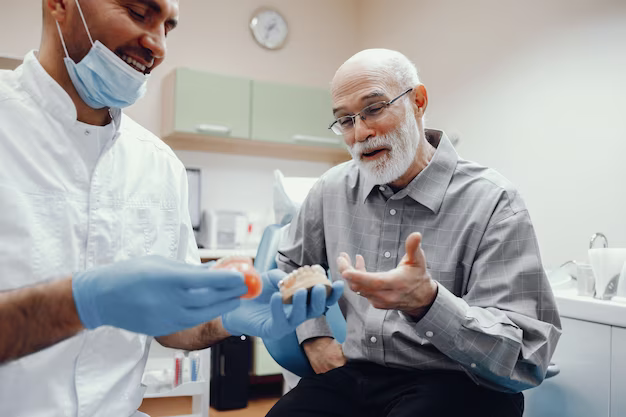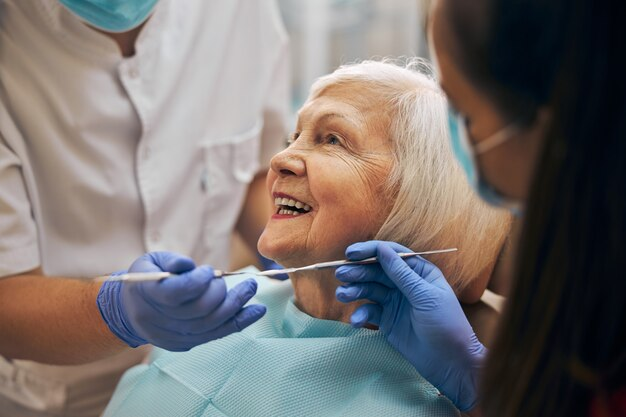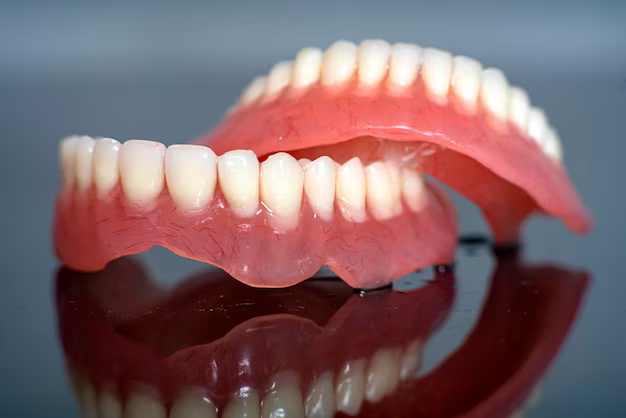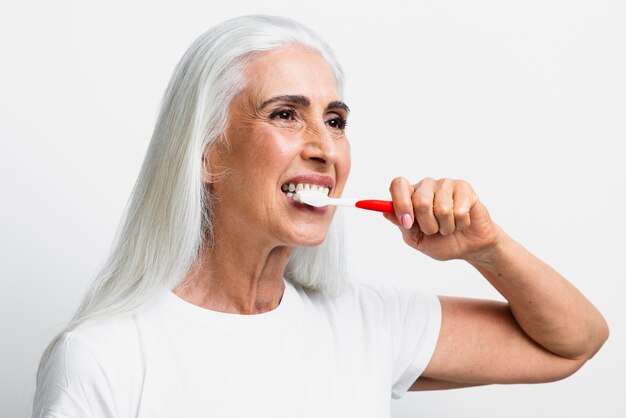“Oral Health and Ageing: Your Guide to a Lifetime of Healthy Smiles”
As we age, our oral health needs change, and it becomes increasingly important to take proper care of our teeth and gums. In this blog, we’ll explore the connection between ageing and oral health and offer tips to maintain a healthy smile throughout your lifetime.
- Dental Challenges in the Ageing Process:
There are some common issues we all face or will face that can arise with age, such as tooth sensitivity, dry mouth, and gum disease. You will receive support for all these issues with regular visits to us.
- The Importance of Regular Check-ups:
The significance of continued dental check-ups and cleanings to catch and address issues early remains important as ageing challenges arise.

- Nutrition and Oral Health:
A well balanced diet plays a crucial role in maintaining strong teeth and gums as we age. Please book an appointment to discuss how to adjust your diet.
- Medications and Oral Health:
Certain medications may affect oral health and can produce potential adverse side effects. Telling your dentist of your medications will allow him/her to advise you about precautions you can take.
- Tooth Replacement Options:
There are various options for replacing missing teeth, such as dentures, dental implants, and bridges. Please schedule a consultation appointment to discuss the most suitable options for you.

- Maintaining Oral Health for Dementia Patients:
We offer guidance for caregivers on preserving oral health for individuals with dementia. This involves advice on support with tooth brushing and denture hygiene which we offer to the patient and carer at appointments routinely.
- Overcoming Dental Anxiety:
We recognise dental anxiety that our older adults may feel when visiting the dentist and there are strategies to help manage it.
Open Communication: Inform your dentist about your anxiety. Dentists are experienced in dealing with anxious patients and can adjust their approach accordingly.
Bring a Supportive Companion: Consider having a trusted friend or family member accompany you to the dental appointment for emotional support.
Regular Check-ups: Attend regular dental check-ups to prevent issues from escalating into more complex and anxiety-inducing procedures.
Desensitisation Techniques: Gradually expose yourself to dental settings by visiting the dental practice building without undergoing any procedures. This can help desensitise your fear.
Relaxation Techniques: Practice relaxation techniques such as deep breathing, meditation, or progressive muscle relaxation to manage anxiety before and during appointments.
Positive Visualisation: Try visualising a calm and positive dental experience before your appointment. This can help reduce anxiety.
Distraction Techniques: Bring headphones and listen to calming music or an audiobook during the procedure to divert your attention.
Familiarity with Procedures: Ask your dentist to explain the procedure in detail before it begins, so you know what to expect.
Signals for a Break: Establish a signal, such as raising your hand, to let your dentist know if you need a break during the procedure.
Support Groups: Join a dental anxiety support group to connect with others who share similar fears and experiences. Sharing stories and coping strategies can be reassuring.
Choose Morning Appointments: Schedule dental visits in the morning when you tend to feel more alert and less anxious.
Oral Health Education: Understanding the importance of maintaining good oral health can motivate you to overcome dental anxiety.
Reward System: Plan a small reward for yourself after the dental appointment as a positive incentive.
- Oral Cancer Awareness:
We cannot stress enough the importance of regular oral cancer screenings during your check-ups, especially for seniors. Early detection can save lives.
- Denture Care and Maintenance:
For seniors with dentures, cleaning and caring for them properly becomes very important. Daily cleaning with a suitable toothbrush and warm soapy water without bleach is the cornerstone to caring for your dentures. Use a mild detergent for this purpose. Schedule regular check-ups to assess the suitable fit of the denture.

- Tips on how older adults can adapt their oral hygiene routines to accommodate changing needs
Use a Soft-Bristled Toothbrush: Ageing can lead to more sensitive gums and teeth. Switch to a soft-bristled toothbrush to avoid damaging the gums while still effectively removing plaque.
Toothpaste with Fluoride: Continue using toothpaste with fluoride to prevent tooth decay. If dry mouth is an issue, consider fluoride toothpaste specifically designed for dry mouth.
Flossing Tools: For those with dexterity issues, use flossing tools like floss picks, interdental brushes, or water flossers, which can be easier to handle. Your dentist will guide you if unsure, schedule a consultation appointment if needed.

Regular Dental Check-ups: Maintain regular dental check-ups for professional cleanings and to address any emerging issues promptly. Discuss any concerns or challenges with your dentist.
Mouthwash for Dry Mouth: If dry mouth is a problem, use alcohol-free mouthwash designed for dry mouth to help maintain moisture and reduce the risk of cavities.
Stay Hydrated: Drink plenty of water to combat dry mouth, which can contribute to tooth decay. Limit sugary or acidic beverages that can erode tooth enamel.
Proper Denture Care: If you wear dentures, clean and soak them regularly as recommended by your dentist. Ensure a proper fit to avoid discomfort or sores.
Oral Hygiene Aids: Consider using oral hygiene aids like long-handled toothbrushes or adapted grips for better control if you have difficulty reaching all areas of your mouth.
Balanced Diet: Maintain a diet rich in calcium and vitamin D for strong teeth and gums. Avoid excessive sugar and acidic foods that can harm dental health.
Medication Review: Keep your dentist informed about any medications you’re taking, as some may have side effects that affect oral health. Adjustments or additional care may be necessary.
Quit Smoking: If you smoke, consider quitting, as it has a detrimental effect on oral health, including an increased risk of gum disease and oral cancer.
Proper Storage: Store your toothbrush in an upright position to allow it to air dry and prevent bacterial growth.
Dental Appliances: If you use removable dental appliances like retainers or mouth guards, maintain their cleanliness and replace them as needed.
Stay Informed: Stay updated on oral health information specific to older adults and share this knowledge with your peers.

To book your visit, please call us:
Notting Hill Branch – 020 7229 4813
Shepherds Bush Branch – 020 8743 4065
Heston Branch – 020 8570 0435
